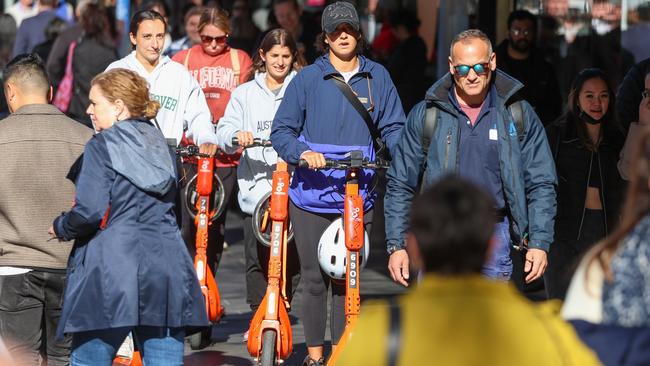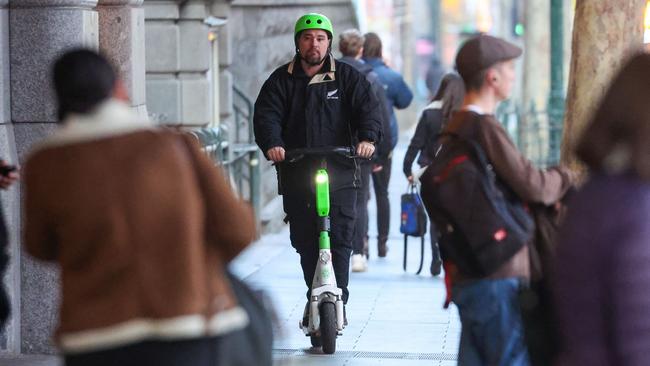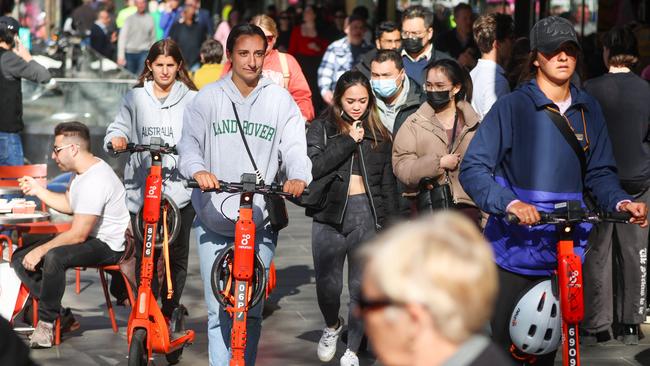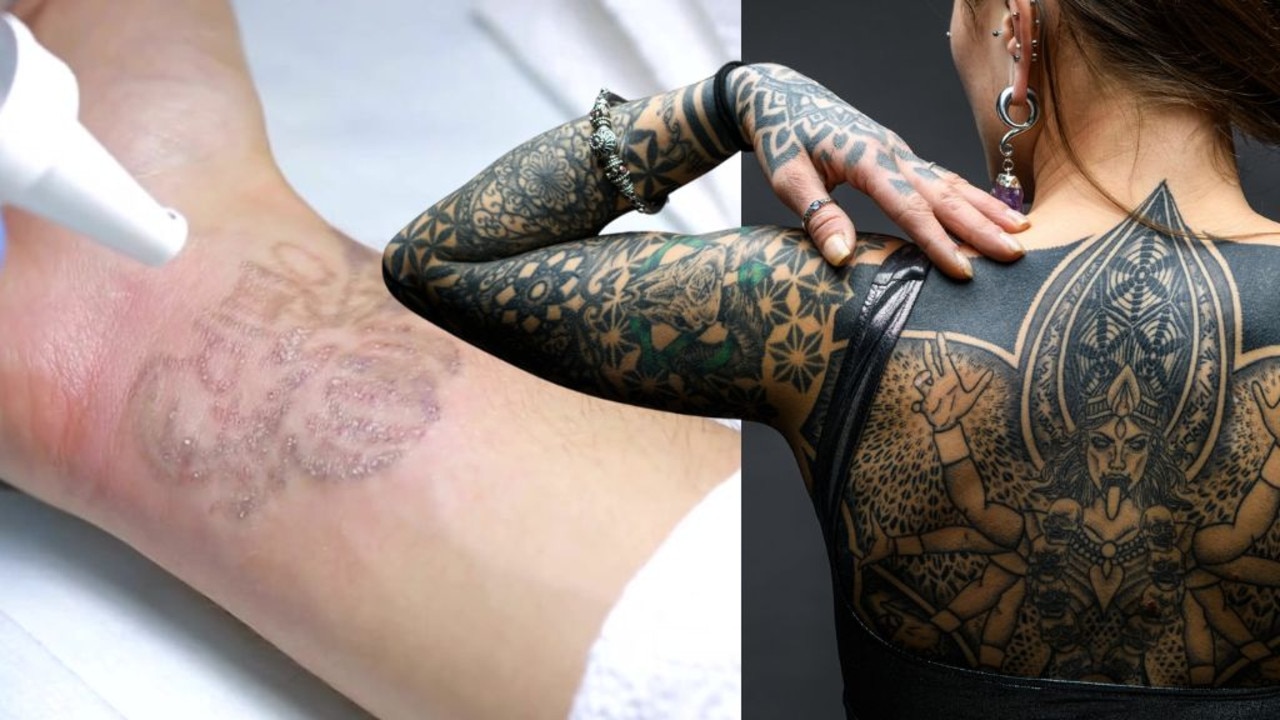The number of Melbourne electric scooter trial incidents has been revealed, as riders flout laws
Calls are growing for the use of e-scooters in Melbourne to be reviewed with claims footpaths have become like the wild west.

News
Don't miss out on the headlines from News. Followed categories will be added to My News.
Nearly 50 people have been injured as a result of e-scooter accidents in metropolitan Melbourne since the city’s trial began in February, with eight incidents involving pedestrians or cyclists.
It’s understood the actual number of incidents involving the motorised scooters is much higher, with not all injuries or accidents reported.
It comes as e-scooter riders continue to flout the law, with many seen riding illegally on footpaths and pedestrians reporting near misses.
Anecdotal reports reveal riders are also failing to wear helmets, using their mobile phones to photograph or film themselves for social media while in transit and some are also leading dogs; all of which are banned.
Under the law, e-scooter riders are only allowed to use low-speed roads (up to and including 50km/h), bicycle lanes, bicycle paths, and shared paths.

They must also be over 18, not be drinking alcohol or under the influence of alcohol.
The fine for anyone riding a trial e-scooter in a restricted area is $182 and for using a mobile device while riding, a hefty $545.
Ben Rossiter, executive officer for pedestrian lobby group Victoria Walks, said he believed the actual number of injuries would be much higher than the official figures because of under-reporting of incidents.
“A lot of cities around the world are reviewing e-scooters because there are major concerns about safety, particularly for walkers,’’ Mr Rossiter said.
“We find it really concerning because it’s a new thing that elderly, people with disabilities and families with kids have to contend with.
“The government’s not addressing walking road trauma and now they’ve added another hazard into the mix with e-scooters.’
“Unless they can do much great enforcement and unless they provide proper insurance for walkers who are hit, we’d like to see the trial suspended.’’
Last week a report by Charles Darwin University researcher Ciprian Radavoi said footpaths had become like the “wild west” because of the boom in e-scooters.
E-scooter trial operator, Neuron, said Melbourne accident levels were well below the Australian benchmark of less than two incidents requiring inpatient treatment per 100,000 kms travelled, and Melbourne was one of the safest rental e-scooter programs it had ever participated in.
And the Victorian Department of Transport said most of the 46 reported injuries between February 1 this year - when the trial started - and May 16 were of a minor nature, like scrapes and bruises, and required no hospital treatment.
Eight incidents involved a third party including pedestrians or cyclists.
The incident level represented just 0.005 per cent of the total trips taken over the trial period to date, it said.
“Melbourne’s e-scooter trial is progressing well with more than 1.4 million rides taken so far,” a Department of Transport spokesman said.
“We’ll continue to work with Victoria Police, participating councils and e-scooter operators to monitor rider compliance.”
The TAC said e-scooters didn’t qualify as motor vehicles under the Transport Accident Act, so riders were not covered under its compensation scheme if and when injured.
However, e-scooter operators were required to have public liability coverage of at least $20 million and provide personal injury insurance to riders, a TAC spokesperson said.
The Victorian Government has partnered with Melbourne, Yarra and Port Phillip councils to conduct the city electric scooter trial, which will run until next February.
The trial allowed approved e-scooters to be used at restricted speeds and in designated locations and provided an opportunity to obtain data that would inform the evaluation of the trial, the department said.

Privately owned, high powered e-scooters are also illegal to ride on Victorian public roads, shared paths and footpaths and can only be ridden on private property.
They do not meet the requirements for vehicle registration and as such are not monitored by VicRoads.
While Victoria Police was responsible for enforcing e-scooter rules, the Department of Transport was working closely with them to monitor compliance, the spokesman said.
An oversight panel was tasked with monitoring the trial, evaluating trial outcomes and making recommendations about the future use of the devices in Victoria.
The benefits stemming from the Melbourne e-scooter trial included a reduction C02 emissions as people replaced short car trips with e-scooter trips, providing new options for connections to public transport and offering access to areas in the city that could not be easily accessed by public transport, the government said.
There were also economic benefits, with many rides involving a purchase from a local retailer and more than 195 local jobs created with the e-scooter operators.
So far this year 29 pedestrians have died on Victoria’s roads - one more than the total for all of last year.
Mr Rossiter said fatality numbers had jumped back to 2019 levels and believed that numbers fell in 2020 and 2021 because of fewer cars on the road and elderly people staying at home.
“We do fear this (more deaths) is a long-term trend.’’



